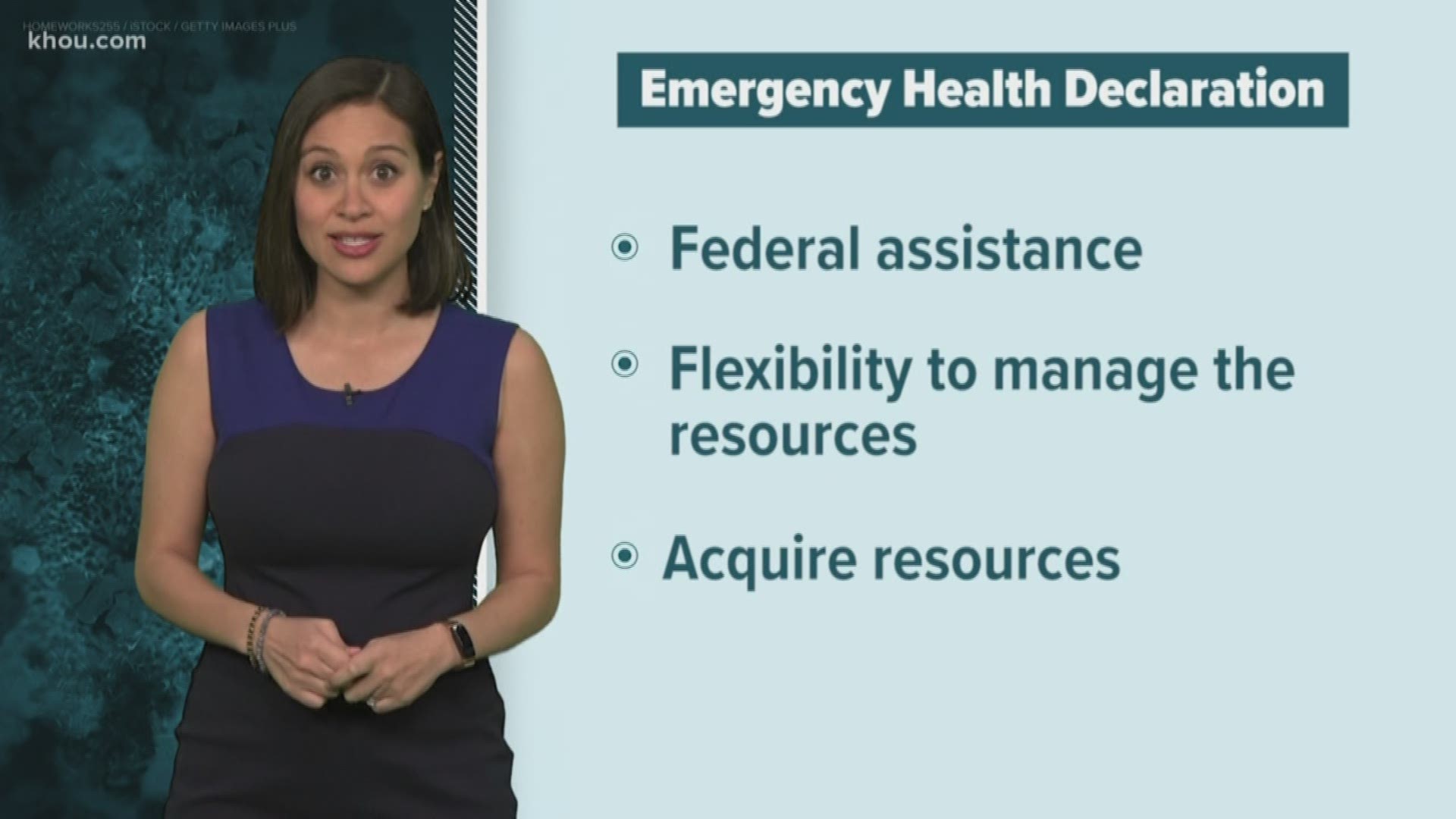Houston Mayor Sylvester Turner is placing the City of Houston under an emergency health declaration for the next seven days in an effort to control the spread of coronavirus.
On Wednesday, Harris County Judge Lina Hidalgo placed the County under a public health disaster declaration for the next seven days.
This declaration activates the Harris County emergency management plan.
An emergency health declaration is issued when a disease or disorder presents a public health emergency or that a public health emergency, including significant outbreaks of infectious disease or bioterrorist attacks, otherwise exists, according to the Department of Health and Human Services (HHS).
Mayor Turner said an emergency health declaration gives him and his staff flexibility in acquiring goods or services needed to combat the coronavirus, managing resources and getting federal help.
The Harris County Judge's Office says a disaster declaration allows the County to make emergency-related expenditures without having to wait and seek approval from Commissioner's Court.
Officials said these declarations do not mean it's time to panic and the Greater Houston area is not shutting down.
Government, schools and businesses do not have to close.
The emergency declaration for Houston will start at the end of the day Wednesday and will last for at least seven days. City council will meet on the seventh day to see if the declaration needs to be extended.
MORE ON CORONAVIRUS
The decision to put the city under an emergency health declaration was made Tuesday after learning a Montgomery County patient, who did not travel internationally, tested presumptive positive for the coronavirus.
" [Tuesday] changed things," Mayor Turner said. "Because [Tuesday] with the case in Montgomery County that was evidence of some community spread, and as a result that takes us to what do we do next."
The Houston Livestock Show and Rodeo has been canceled for the remainder of the season due to the coronavirus. Grounds will officially close at 4 p.m. Wednesday.
Many other city-sponsored events happening in the month of March will either be canceled or rescheduled.
Coronavirus symptoms
The symptoms of coronavirus are similar to the flu or a bad cold. Symptoms include a fever, cough and shortness of breath, according to the Centers for Disease Control.
Most healthy people will have mild symptoms. A study of more than 72,000 patients by the Centers for Disease Control in China showed 80-percent of the cases there were mild.
But infections can cause pneumonia, severe acute respiratory syndrome, kidney failure and even death, according to the World Health Organization. Older people with underlying health conditions are most at risk.
The CDC believes symptoms may appear anywhere from two to 14 days after being exposed.
SPECIAL COVERAGE: Stay up to date on coronavirus
How coronavirus is spread
Human coronaviruses are usually spread through
- The air by coughing or sneezing
- Close personal contact, such as touching or shaking hands
- Touching an object or surface with the virus on it, then touching your mouth, nose or eyes before washing your hands.
Help stop the spread of coronavirus
- Stay home when you are sick.
- Eat and sleep separately from your family members
- Use different utensils and dishes
- Cover your cough or sneeze with your arm, hot your hand.
- If you use a tissue, throw it in the trash.
Lower your risk
- Wash your hands often with soap and water for at least 20 seconds. If soap and water are not available, use an alcohol-based hand sanitizer.
- Avoid touching your eyes, nose, and mouth with unwashed hands.
- Avoid close contact with people who are sick.
- Clean and disinfect frequently touched objects and surfaces.
- If you are 60 or over and have an underlying health condition such as cardiovascular disease, diabetes or respiratory illnesses like asthma or COPD, the World Health Organization advises you to try to avoid crowds or places where you might interact with people who are sick.

